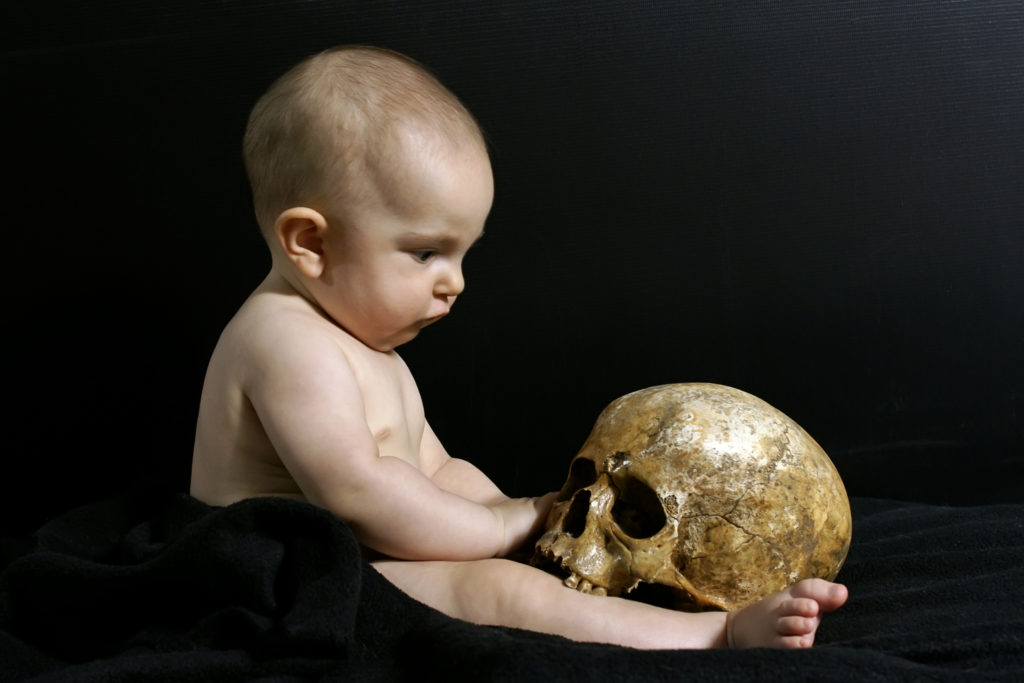We are recognised as authorities in our specialised fields. We publish newsletters with informed opinions that are free for you to subscribe to.
It’s about personal responsibility
We are born naked and without any possessions or identity. But from the moment we fill our lungs with our first breath and scream our arrival into this world we begin accumulating. We accumulate, clothes, a car seat, Plunket book, toys, birth certificate, basinet, pram, high chair, more toys, bank account, NHI number, photos, a buzzy bee… all this before we celebrate our first birthday!
By the time we get to middle age we may have added a partner, home, children, friends, business associates, credit cards, online profiles, cars, boats, bikes, an aeroplane, pets, businesses, shares, pension fund, many more photos, mortgages, jewels, paintings and maybe even a grandchild. In our old age we are still at it, adding great grandchildren, pill organisers, lists, mobility scooters, walking sticks, more photos, lists, a new partner, bigger medicine cabinet, gold card, did I mention lists? So it goes on until we accumulate our last item a death certificate.

At that point your life time of accumulated possessions and societal connectedness is handed over to someone to administer. Depending on what arrangements you made during your lifetime, that person will either thank you for your final gift of kindness, an organised and well planned estate. Or curse you for leaving an unholy mess for them to unravel and resolve.
It is a reasonable family and societal expectation that you, the habitual accumulator, should take responsibility for the orderly disposal of your stash. Statisticians estimated that at least 50% of Americans do not have a will and I expect the statistics are similar in New Zealand. That’s an appalling lack of personal responsibility.
Death and Estates is a topic our society finds notoriously difficult to talk about and understandably so, it requires an admission by not only you, but your family and friends that you will not live forever. It evokes, emotional responses which we can find difficult to deal with and requires a degree of honesty about our lives and relationships we may not want to admit to or discuss with others. It’s a tough topic but a very important one. Communicating and documenting your wishes and reconciling these with family member’s expectations before you die takes courage. The benefits of doing so may be:
- Clarity and understanding of what you want and acceptance within your family.
- Reduced family tensions. Let’s not ignore the elephant in the room. Who gets what from an estate can evoke very strong emotions. Resolving this within the family before you die can help with family unity.
- Certainty that your paper work is all in order.
- Gratitude from the people you choose to administer your Estate. Often these people are very close to you. When you die they will be dealing with their own grief. They will thank you if everyone already understands what your funeral wishes are and that you have shared fundamental decisions regarding your estate with your family.
An estate plan is not a one size fits all. It is essential to take professional advice on the decisions you make. Having all relevant documentation professionally prepared ensures your wishes are carried out. If you have a large number of assets and/or businesses or your family situation is complicated you may consider having an independent person help you reach your decisions and implement them.
At basic level once you have completed your estate plan you should have:
- Planned for the care and welfare of any family members that are financially dependent on you.
- Reviewed your assets and liabilities and completed any restructuring or estate planning that may be required.
- Prepared a valid will.
- Written a letter to your family detailing matters which do not belong in a will. This may describe what you would like for your funeral or specify any sentimental gifts you wish specific family members or friends to inherit. Although not legally binding your family may find this guidance very helpful.
- Prepared enduring powers of attorney for personal care and welfare and property.
- Organised your digital and paper files so your executor can readily establish your assets and liabilities and locate important documents and contact details.
- Explained to your family who holds the powers of attorney and is the executor of your will.
Planning your estate is not a task undertaken with great whoops of joy and enthusiasm. However, once done it should only require a periodic (five yearly) review. You can then get back to accumulating and adding to your stash. Knowing you have taken personal responsibility for transferring your assets to the people you care about when you, push clouds, take the count, hop the twig, stick one’s spoon in the wall, cark it or whichever euphemism you may use for “die”.
If you have any questions about this article or need help with estate planning contact Marion.
If you don’t know where to begin, want to talk through something, or have a specific question but are not sure who to address it to, fill in the form, and we’ll get back to you within two working days.
Find out about our team
Look through our articles
Read more about our history
Business Advisory Services
Tax Specialist Services
Value Added Services
Get in touch with our team
Want to ask a question?
What are your opening hours?
AML & CFT Act in New Zealand
Events with Gilligan Sheppard
Accounting software options
Where are you located?
Events

